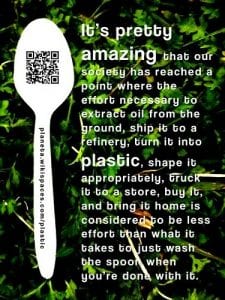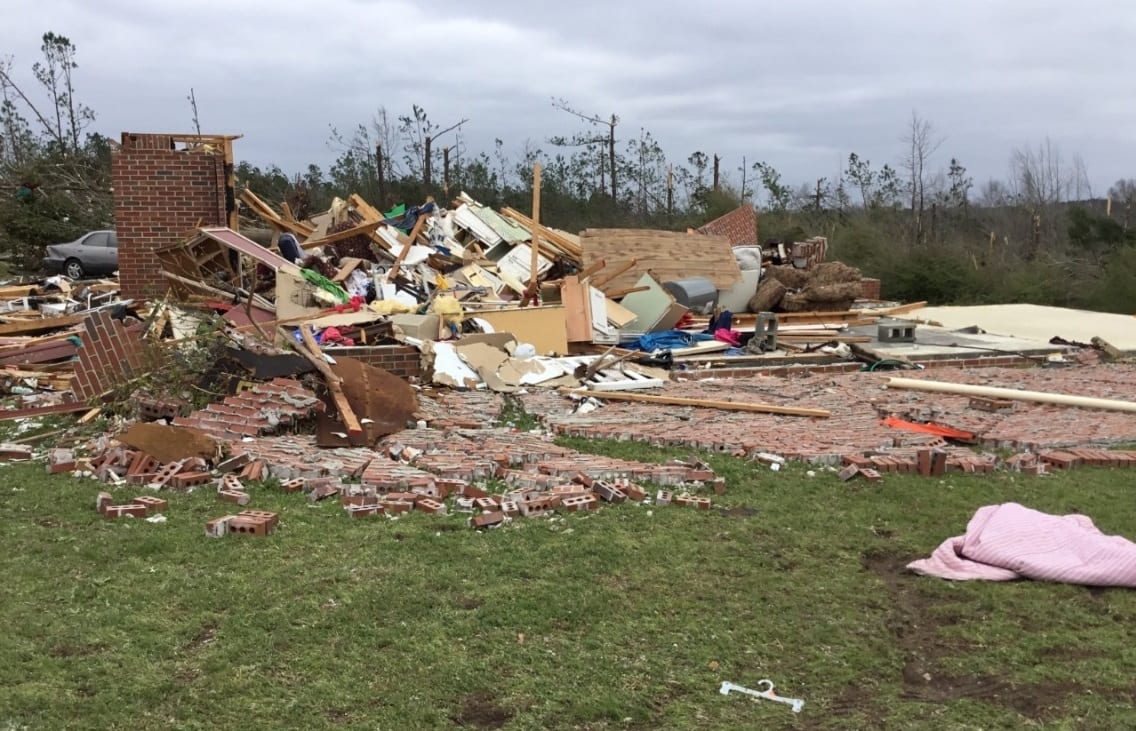Too much flooding, too many wildfires and tornadoes, too much carbon in the atmosphere, too much stuff, too much waste, and it’s all connected.
It’s all a little too much lately, isn’t it? The world’s problems continue to pile up, creating a self-perpetuating feedback loop of even bigger problems. How is it all connected? Let’s untangle this mess and see if we can find where everything started coming undone.
The flooding in the Midwest isn’t going away. The National Weather service says that the continental United States hasn’t had a wetter 12 months in the 124 years they’ve kept track. Right now there’s too much water soaking the fields and farms that are supposed to be gearing up for another world-feeding growing season. Farmers must decide between planting their seeds and risk wasting them on a crop that won’t reach maturity, or not growing a crop at all.
All that water has to go somewhere, and it’s currently headed down the Mississippi River. In Vicksburg, Mississippi, the river has been above flood stage constantly since February 17th. Record high water is breaching levees along the Mississippi and Arkansas rivers.
Meanwhile, to the north, Canada is burning. Wildfires have incinerated upwards of 900,000 acres in Alberta, turning the sky orange and causing blood-red sunsets as far away as Vermont. There’s an abnormal heat wave across Canada and into Alaska, caused or exacerbated by the same problem that’s pouring too much rain on the Midwest: the climate crisis unfolding around us.
Because of the disasters, food will likely rise in price as the expected bushels fail to materialize. It will cost perhaps too much for the poorest to afford and opens the door to social unrest, while the global wealthy (that’s us!) throw too much food away.
Warming average temperatures aren’t necessarily uniform around the globe. Some areas get hotter than others, causing chaotic shifts in weather patterns. Dry areas dry out even more, becoming tinder. Wet areas may flood, as warmer air holds more moisture and can release it in the same place without moving along, as we’re used to. It’s often because we’ve pumped too much carbon dioxide (and other heat-blanketing gases, like methane) into the atmosphere for too long.

Why do we treat the atmosphere like an open sewer? Because we want inexpensive stuff! Think of the overwhelming, nearly obscene abundance of cheap crap that industrial culture allows us to consume and waste. Cheap foodlike products, plastic everything, automobiles, consumer electronics, fast fashion, air travel, McMansions, and more. We have too much stuff, so much that we glaze over while trying to choose among all the available options, and eventually have to KonMari it away to be happy again. We throw away so many computers that people in Ghana get sick from working in the informal industry that popped up to recycle it all. We produce so much trash that not even the dumps in the Philippines want it anymore. We have so much food that researchers formulated a new drug to allow people to gorge on it without gaining weight.
That sickening profusion affects the soil and waterways. Growing too much cheap food and clothing means mining the soil, and we’ve got too little soil left. Just like we’ve known for a while that a collapse is on the way, we’ve also seen the end of topsoil coming if we don’t change how we farm. At the rate we’re poisoning water all over the world, it’s unclear where we’ll drink from in the future. Plastic has been found everywhere from the mountains to the deepest ocean trench. When we think of flooding and wildfires, we should also imagine the bellies of wild creatures stuffed with plastic trash. It’s all related.
The tide is turning – a little. The people of Norway want to leave their oil under the Arctic, a move that “surprised and disappointed” the oil industry. Floods and the nearly 700 tornadoes that have blown through the United States already this year have convinced many Midwesterners, at least, that maybe those climate scientists are on to something, but will our politicians and the lords of business do anything about it? Did you hear the one about Alberta’s Premier, Jason Kenney, having to cancel a party held at a gas station to celebrate repealing the province’s carbon tax, because he had to receive briefings about the local wildfires? Folks, you can’t make this stuff up.
Too much, too little, too late. The best time to have done something about this was decades ago. We had the warnings, we knew what was coming. But the second best time is now.
Related: Too Much Stuff


Join the conversation!